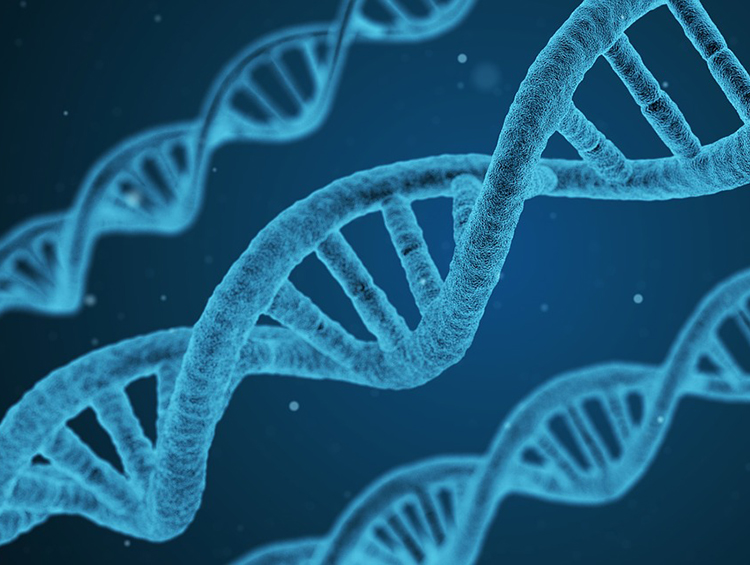
- Criotransferencia, Embriodonación, FIV, Ovodonación
Autora: Sylvia Fernández Shaw
 Español (Spanish)
Español (Spanish) Français (French)
Français (French) English
Englishthe annual gynecological examination includes
The gynaecological examination can be done in our clinic with any of our gynaecologists at the Instituto de Medicina EGR. They attend both private and medical companies´ patients from Monday to Friday, morning and afternoon. most cases all can be done in one day, and the results will be ready in 7-10 days.
The aim of cultures is ruling out the presence of infections that can reduce the fertility of the couple.
A vaginal swab is carried out in the woman looking for any bacteria or fungi, and an endocervical swab looking for gonococcus, mycoplasm and chlamydia. It can be done at any day of the cycle (except during the period). No appointment is necessary, although it is advisable to call on the day, before going to the clinic.
An urethral swab is carried out in the man looking for gonococcus, mycoplasm and chlamydia. In the clinic we will give you the instructions to take the sample yourself. If the test is done on the same day of the sperm sample, it has to be taken after ejaculation. If it’s done any other day, no appointment is needed.
The tests are quick, simple and painless for both women and men. Results are available in 7-10 days.
The endometrial biopsy is carried out introducing a small cannula through the uterine cervix to obtain a sample of the endometrium. It can be performed in the consultation room. It studies the endometrial response to hormonal levels
in the second phase of the menstrual cycle (day 21 to 25 of the cycle), and determines any inflammatory alteration which could affect the implantation of an embryo. The test is performed in cases of recurrent miscarriages, implantation failure or inflammatory intrauterine pathology.
It is necessary to ask for an appointment. It can be done from Monday to Friday morning or afternoon. The test can produce mild abdominal discomfort, so 5-10 minutes rest is recommended after the biopsy. Results will be available in 7-10 days.
The endometrial biopsy is carried out introducing a small cannula through the uterine cervix to obtain a sample of the endometrium. It can be performed in the consultation room. Ésta prueba se realiza en consulta entre los días 6º al 9º del ciclo.
Estudia la presencia de bacterias que pudieran contaminar el endometrio y de células inflamatorias (CD138+) que pudieran dificultar la implantación de un embrión. The test is performed in cases of recurrent miscarriages, implantation failure or inflammatory intrauterine pathology.
It is necessary to ask for an appointment. It can be done from Monday to Friday morning or afternoon. The test can produce mild abdominal discomfort, so 5-10 minutes rest is recommended after the biopsy. Results will be available in 7-10 days.
It is an X-ray of the pelvis, taken after the injection of a radio opaque product through the uterine cervix, in order to picture the uterine cavity and the fallopian tubes.
It allows identifying any obstruction o damage of the fallopian tubes, as well as alterations of the uterine cavity.
Esta prueba debe realizarse del día 6º al 10º del ciclo menstrual en un Departamento de Radiología. In the consultation we will inform you about the hospitals that offer this service so that you can make an appointment. The test may cause slight discomfort during its performance.
Next, you can see in a more visual way what hysterosalpingography consists of.
It is a transvaginal ultrasoundcarried out after the injection of a physiological solution in the uterine cavity through the cervix.
The liquid is introduced into the uterus slowly, allowing observation of alterations in the uterine cavity (e.g. polyps). Esta prueba se realiza entre los días 6º al 10º del ciclo.
It is necessary to ask for anappointment. a. It can be done from Monday to Friday morning or afternoon. The test can produce mild abdominal discomfort,so 5-10 minutes rest is recommendedafter the histerosonography.Results are available immediately and are explained by the doctor after the ultrasound in consultation.
A laparoscopy consists of intervención bajo anestesia general que consiste en la introducción de una luz y una óptica a través de una pequeña incisión en el ombligo para visualizar el útero, los ovarios, las trompas de Falopio y toda la cavidad pélvica de forma que se estudia el aparato ginecológico interno. It is a brief intervention under general anaesthesia and normally carried out in an outpatient manner.
Esta prueba será coordinada con los ginecólogos del Instituto de Medicina EGR, que pasan consulta privada y de Sociedades Médicas, y cuya cirugía menor ambulatoria se realiza en el Hospital de su elección. although hospitalization is not usually required There is no waiting list for this test in our clinic.
The FISH(Fluorescence in situ hybridization) test is an analysis used to detect possible alterations in sperm chromosomes. This test is indicated in the case of altered spermiogramor male karyotype, in repetitive miscarriages, or in implantation failures.
During the formation of the spermatozoa in the testes, errors can occur thatwill giveriseto sperm with an extra copyof achromosome (disomy), withoutachromosome (monosomy)or with all chromosomes duplicated(diploidy). If any of these abnormal spermatozoa, fertilize the oocyte, the result could be the non-implantation of the resulting embryo or miscarriages. The number of chromosomes to be studied (3, 4, 5 or 9 chromosomes), the number of counted spermatozoa (from a few hundred to thousands) and its realization in an automated (computer) or manual (by an operator) way,determines the reliability and quality of the result.
In URH García del Real, we collaborate with an external genetics laboratory with wide experience in this technique (Genomic Systems).We analyze the largest number of chromosomes (9) possible, through an automated system that looks at 10,000 sperm. We, thus, obtain reliable and reproducible results, in the shortest possible time. This test is performed on a semen sample obtained by masturbation.
This test is performed on asemen sampleobtained by masturbation. and there is a specific room for obtaining this type of samples. Debe tener una abstinencia sexual de 3 a 5 días antes de realizar la prueba. It is necessary to ask for an appointment directly with the staff of the IVF Laboratory. The test can be performed from Monday to Friday from8 a.m. to 4 p.m. Results are available in 2-3 working days. The results will beavailable in 3-4 weeks.
The test is a blood analysis that detectsthepresence of mutations which can be cause of recessive genetic diseases. Se analizan mutaciones asociadas a más de 500 enfermedades genéticas recesivas con distinto impacto en la calidad de vida de los pacientes, incluyendo variantes con incidencia especialmente elevada en el área mediterránea.
The result of a personis compared to that of the other member of the couple allowing the, so called, “genetic compatibility test”. If both are carriers of the same mutation, the couple will have a 25% odds of having a child with such disease. This test can be performed insperm or oocytes donorswith the objective of choosing a donor that will offer the minimun risk of conceiving children with any recessive genetic disease.
Any doubts before the test, or once the results have arrived, can be asked in a genetic consultation.
The test is performed on a blood sample fromMonday to Friday from 8.00 to 18.30. There is no need to be fasting and it is not necessary to make an appointment. Los resultados estarán disponibles en 2 semanas.


Camino de la Zarzuela, 19 28023 (Aravaca) Madrid.
+34 91 740 16 90
secretaria@urh.es
Monday to thursday
8:00h a 14:00h 15:00h a 19:00h
Friday
8:00h a 14:00h



Demande un rendez-vous.
PIDE CITA
Envíanos este formulario con tus preferencias para la cita (fechas y franja horaria) y te llamaremos por teléfono para concertarla. En caso de que quieras que te contactemos por e-mail indícanoslo en los comentarios. Muchas gracias.